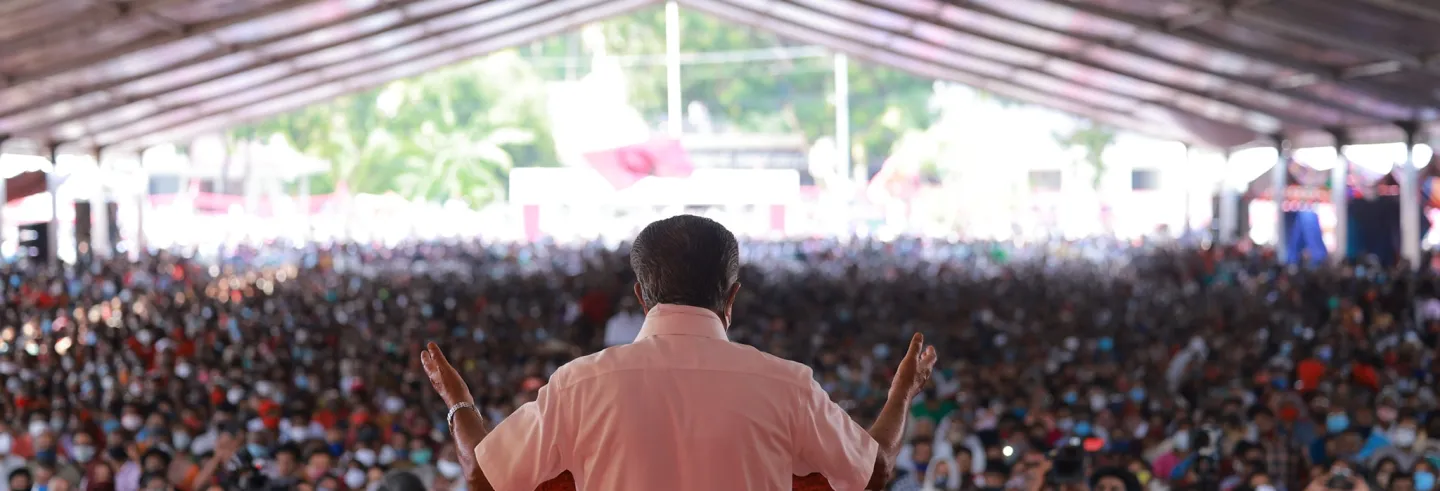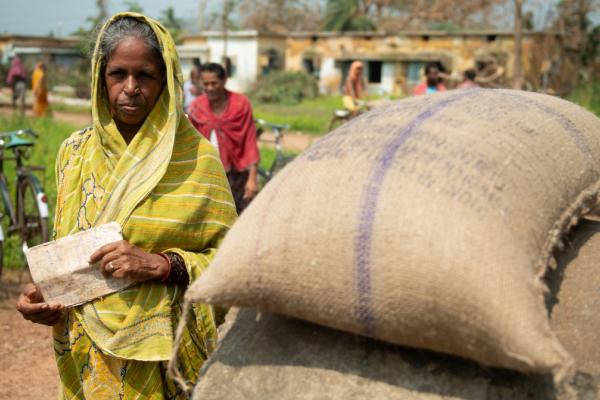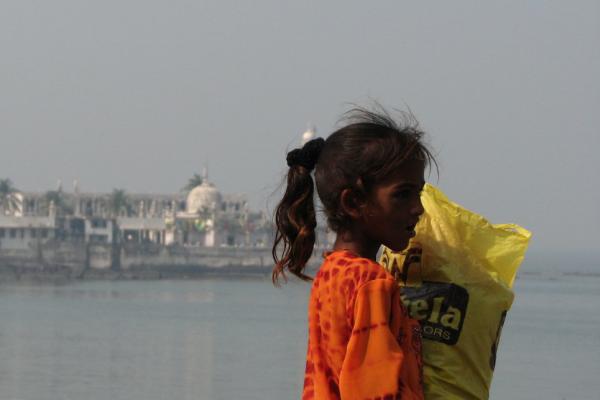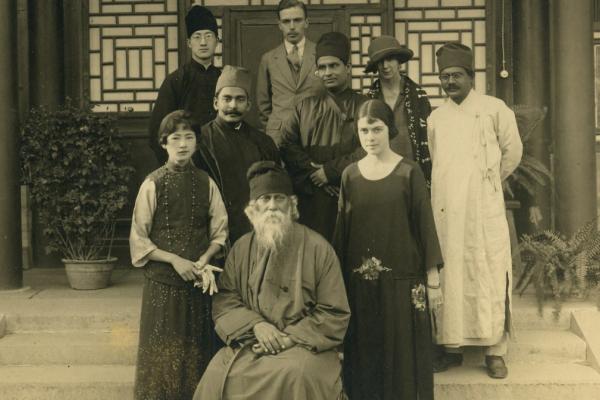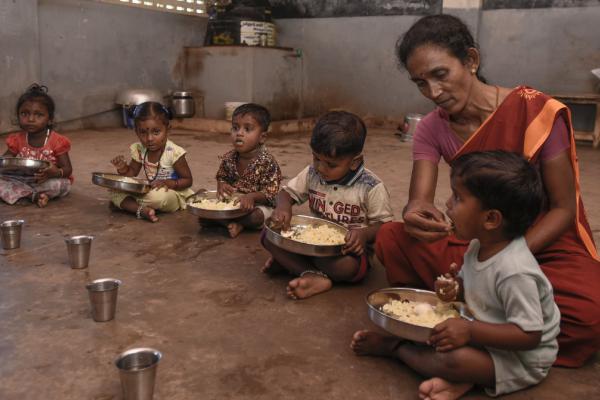It is by now settled wisdom that the Left Democratic Front (LDF) in Kerala won a second consecutive term mainly because of its good performance in office between 2016 and 2021.
The LDF’s victory came on the back of its creditable response to a series of emergencies during its rule, as well as a solid performance in other areas of governance. Whether it was in responding to the unexpected, or undertaking welfare measures, or administering routine public affairs, the Left set new benchmarks. For the first time in living memory, most Malayalis had a sense that they were being ruled properly.
The emergencies — an outbreak of Nipah virus infection in 2018, devastating floods in 2018 and 2019, and the ongoing Covid-19 pandemic — taught the LDF ways of effectively and quickly mobilising governmental machinery. Party cadres were also galvanised for campaigning since they had been active in relief tasks. In the process, the Left was also able to erase the impression that it lagged behind the Rashtriya Swayamsevak Sangh (RSS) and the Indian Union Muslim League (IUML) when it came to non-political social work.
Instead of a few high-profile doles, a calibrated enhancement of welfare provision to diverse sections was the LDF’s preferred method. These targeted welfare measures helped the Left overcome the advantage the BJP has in other states from owning the central government’s welfare schemes that bypass state governments.
A major political result has been the creation of a new voting block that, cutting across lines of community or class, prioritises good governance over all other considerations. This block's voting preference is likely to be crucial from now on and both fronts — the LDF and the opposition United Democratic Front (UDF) — will be pressed to meet the standard it sets.
A break in the cycle
From the beginning of the millennium, if not from before, Kerala’s governments have not been shining examples of efficiency. When the UDF has been in power, ministers from different coalition parties have usually gone their own way. LDF rule has been marked by conflict between the government and party organisations. The anti-incumbency strand in the Kerala electorate's genetic make-up has undone even governments that performed well in the past.
Over the four decades in which a two-coalitions pattern has stabilised, one front or the other has often trounced its rival by similar-size margins as in the latest elections. The shellacking the UDF suffered in the latest elections — 41 seats to the LDF's 99 in an assembly of 140 — was not unprecedented. During the 2019 parliament elections, the UDF had won 19 of the 20 Lok Sabha seats from Kerala. But a break in the cycle by which one front replaced the other in power with unfailing regularity since 1982 was almost unthinkable.
The Left's very success has set the benchmark that will loom as a challenge in the future.
In the 2019 Lok Sabha polls, the main electoral issue (though not the most emotionally charged) was the nature of rule at the centre. Kerala's Muslims and Christians (who together make up a little under half of the population) keen on keeping the BJP out of power, had little choice but to opt for the Congress-led UDF. The Left was not going to be a force at the national level, and it was widely believed that Congress and like-minded parties would do well across India.
In contrast, the LDF in 2019 was hobbled by a self-inflicted wound from its mishandling of the Sabarimala issue. Hindu voters, determined to teach the LDF a lesson, voted for the UDF rather than a BJP that did not have the political capacity to have a state-wide impact. But the hammering was a one-off event. The Hindu voters were satisfied that the sharp rap on the LDF’s knuckles had driven the lesson home and there would not be a repeat of the ham-handedness. That was closure enough for members of the community. The LDF bounced back by trouncing the UDF in elections to the local bodies held in December 2020.
UDF loses the plot
Ahead of the assembly elections, the UDF comprehensively misread the updated public mood. There was little in its campaign that focused on the future. Despite surveys showing that less than 20% of the people thought Sabarimala had any salience, the UDF launched its 2021 campaign by raking up the issue once again. Leaders of the UDF seemed to believe that highlighting their rivals' misdeeds would be enough to boost them to power.
Congress leader Ramesh Chennithala’s relentless agitation against what he insisted were a series of scams involving LDF personnel gained much print space and airtime but little political traction. A barrage of scandals had erupted in the second half of 2020 after customs officials discovered that diplomatic bags belonging to the Consulate General of the United Arab Emirates in Thiruvananthapuram had been used to smuggle dozens of kilograms of gold over several phases. Other central government institutions — including the National Intelligence Agency, Central Bureau of Investigating and the Enforcement Directorate (ED) — soon got involved. Investigators found new threads, latched on to unrelated allegations and went on so far as to give the impression that they had the licence to initiate any probe they wanted.
[G]iven the poor political acumen displayed by the Kerala leadership of the BJP and the cluelessness of the centre ..., it now seems likely that Congressmen will not be too eager to don saffron.
Months later, by the time votes were being cast, there was little that the central agencies could show for their efforts other than a few confessions made by suspects while in custody. Anecdotal evidence suggests that the electorate was at best ambivalent about these investigations. Their default suspicion of all politicians pushed them towards placing some credence in the reports so assiduously planted by the agencies, especially the ED, about progress in the enquiries. At the same time, they were also forming the impression that the agencies had been mandated by the central government to find something rotten in LDF-ruled Kerala before election day.
A Congress party that has been protesting all over the country against the central government's misuse of investigative agencies seemed to find nothing wrong in even the most egregious over-reach by the ED and Customs when it came to the Kerala probes. The UDF continued to harp on the dubious claims put out by the agencies when not a single case had progressed to the trial stage. More inexplicably, it continued to tout the central probes long after the local bodies poll (held when charges and probes were the hottest of topics) had shown that the people were not overly interested. The UDF seemed to have forgotten that the people of the state followed the news and were hence well aware of the double standards underlying its campaign.
The BJP bubble
What the UDF also seemed to have overlooked was that both the themes — religion and corruption — could be taken up with even greater gusto by the BJP. After all, the saffron brigades had spearheaded the Sabarimala protests and the corruption investigations were being ultimately supervised by the BJP government at the centre.
The BJP’s Kerala campaign had an overwhelming supply of funds. Star campaigners from the centre and other states put in their appearance. The local BJP president, K. Surendran, was provided with a helicopter to shuttle between the two constituencies in which he had filed nomination papers.
The BJP’s campaign had tell-tale signs of hubris and of living in an echo chamber. Surendran claimed the BJP would form the government even if it won just 30 seats, imputing that defections from Congress would provide the further 41 seats required. The BJP’s candidate in Palakkad, E. Sreedharan, started putting himself out as the chief minister in waiting. No BJP leader seemed unduly embarrassed by the political immorality inherent in their claims.
The results would have been a dampener to such rhetoric. The party lost the one seat it had secured in 2016 and its vote share came down to 12.53 % from 14.65 %, representing an erosion of over four lakh votes. Its only consolation was that the number of seats in which it emerged runner-up went up to nine from seven.
Ahead of the results, there was speculation that the BJP would see a massive accretion of upper caste support if Congress disintegrated after a defeat. Faced with another five years in opposition wilderness, the Congress would normally have been sorely tested to hold its flock together. However, given the poor political acumen displayed by the Kerala leadership of the BJP and the cluelessness of the centre when faced with the second wave of the pandemic, it now seems likely that Congressmen will not be too eager to don saffron.
Social engineering
There are signs that the BJP's emergence as a viable third force in Kerala made an impression on how members of minority communities view state politics and the Left parties. The LDF seems to have achieved some success in diluting the scepticism that Muslims and Christians have always harboured about it.
In the six northern districts that fall in the Malabar region — where Muslims form a larger proportion of the population than elsewhere — the LDF was able to replicate earlier successes against the IUML, a UDF constituent. Pitting League dissidents or other leading Muslims as independent candidates backed by the LDF helped chip away constituencies that had earlier seen narrow victory margins. The LDF had also burnished its image as a champion of secularism through its protests against the Citizenship (Amendment) Act and the Nation Register of Citizens. No UDF Muslim candidate won a seat outside the community's strongholds in Malabar.
The challenge before the LDF is to prove that it has ideas for boosting revenues through a method for economic development that does not lead to great inequality.
‘Social engineering’ was more pronounced and systematic in the LDF's approach to the Christian community. The LDF poached the Kerala Congress (Mani)—(KC(M))—from the UDF, gaining for the left coalition a Christian-backed party. More seats than ever before were brought into the Left's kitty in central Travancore, a region where Christians are politically prominent, and the results in at least a couple of constituencies in north Kerala were probably affected by splits in the Christian vote.
Whether social engineering alone yielded these dividends is an open question. The Christian vote is not as monolithic as the Muslim, and prominent figures in the powerful Syrian Catholic church had spoken out against the LDF at crucial times. KC(M) president Jose K. Mani’s loss in his home constituency to another Christian candidate probably indicated that such calculations do not work beyond a point. These facts could be an indication that the LDF's governance record was as potent an electoral game-changer as the social engineering it effectuated.
Tackling Covid-19
Post January 2020, the yardstick for measuring the quality of governance anywhere on earth has been how administrations have tackled Covid-19. Kerala’s image got a boost with the LDF’s response during the first phase of the pandemic when it set up and operated an effective mechanism to contain the spread of the virus as well as ensure food and other supplies to the population during the lockdown. For her leadership, Health Minister K.K. Shailaja was described in the international media as a “rock star”. Opponents insisted that the ‘Captain’ sobriquets Chief Minister Pinarayi Vijayan earned was a reflection of his autocratic style. The people, who could see that decisions were being taken and implemented, were not complaining.
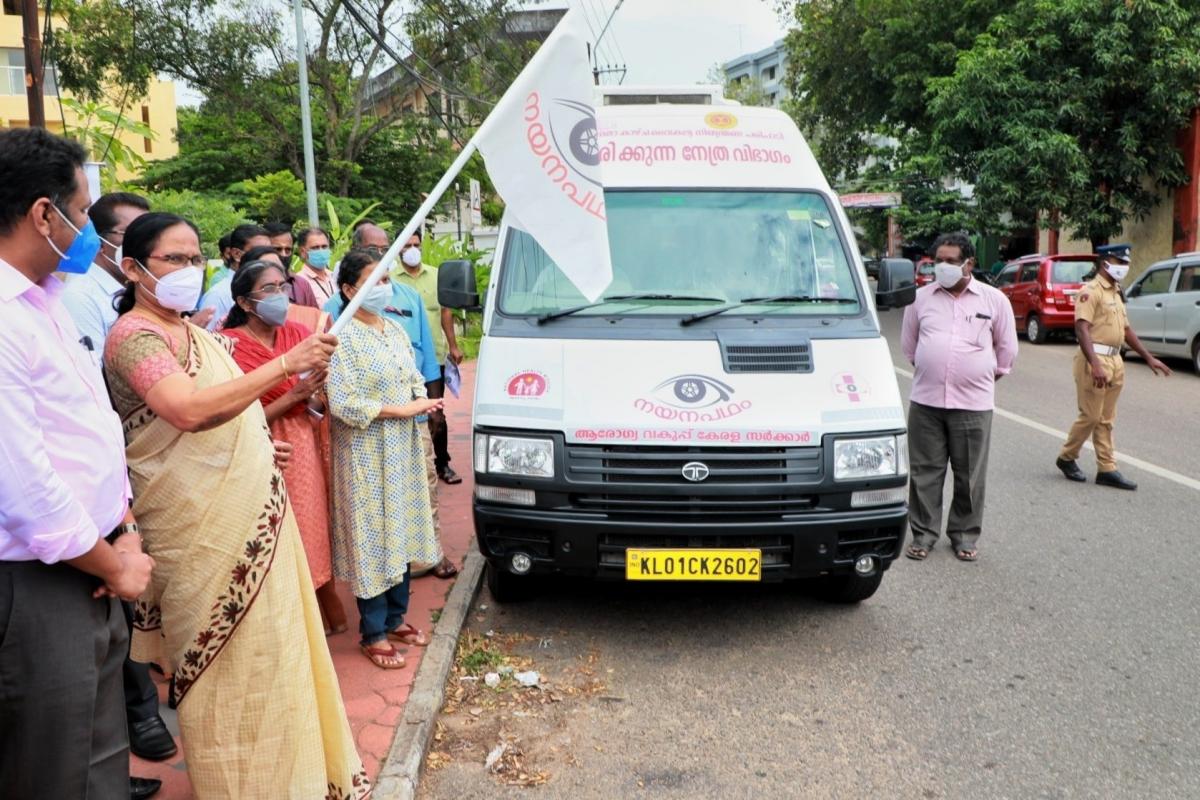
To meet the contingency of the 2020 lockdown, the government provided monthly food kits with 18 items to all ration card holders for almost a year (over 90% of the families are said to have availed of them), got the Kudumbashree womens' cooperatives to run free community kitchens and delivered rations to ‘guest workers’ free of cost. Containment efforts were not as spectacular in later phases, due to many more factors beyond governmental lapses. But with a low death-to-infection ratio (which indicates the healthcare system's efficiency), Kerala still stands out against other states.
The road ahead
As the LDF takes on a second five-year term, public finance and the lack of a breakthrough in economic development continue to remain vulnerabilities. The outgoing finance minister, T.M. Thomas Isaac, had pulled off a stroke of genius when he set up the Kerala Infrastructure Investment Fund Board (KIIFB) to offset the centre's parsimony in providing funds to opposition-ruled states. Masala bonds floated by the KIIFB have helped finance projects in almost every single assembly constituency. Infrastructure improvement has been touted as a chief means for attracting investments, but so far domestic corporates have been tardy in their response.
The LDF has completely turned around the public schooling system, reversing the flow to the private sector. But for domestic innovation to become a generator of wealth, the quality of higher education has to be enhanced drastically. That is one area in which the LDF has made little progress. Condition of roads, power and water supply are far better than before though certainly not perfect. Agriculture has not fully revived despite innovative efforts.
Pinarayi and the LDF have run a government that for the first time in this millennium provided a proper administration in the state.
Both the UDF and the BJP, with their business-friendly approaches, can exploit these vulnerabilities. For the moment, neither appears to be in any condition to do so. The UDF's sclerotic leadership will not allow a more youthful, more energetic and imaginative group to rise. The BJP's relatively younger office-bearers and its old guard seem to be getting ready for another spell of internecine conflict.
Pinarayi Vijayan and his incoming team will have some breathing space. It will be a new team because the two communist parties at the LDF's core stuck by the principle of denying tickets to those who had completed two consecutive terms in the Assembly. Some very talented people have been left out, though as members of high-echelon party committees their voices will still count. Their places are likely to be taken by younger people, some of whom have already proved themselves as parliamentarians.
The Pinarayi model
The ‘Kerala model’ has proved its worth as far as the public welfare dimension of good governance is concerned. The challenge before the LDF is to prove that it has ideas for boosting revenues through a method for economic development that does not lead to great inequality. It is the model they craft rather than an individual that can help the Left emerge as a real alternative at the national level.
It is unlikely that Pinarayi will emerge as the leader of the national opposition to the NDA since Kerala's size and his blunt political persona militate against such an outcome. But he can still provide a masterclass in leadership for anyone interested.
Most vital among those lessons is the necessity for leaderships to both provide a sense of security and instil a belief that the march to a better life will be sustained. Pinarayi and the LDF have run a government that for the first time in this millennium provided a proper administration in the state. This lived experience will not be soon forgotten by a growing group of discerning people in Kerala, who cutting across lines of creed and class, will insist on delivery. The Left's very success has set the benchmark that will loom as a challenge in the future.


